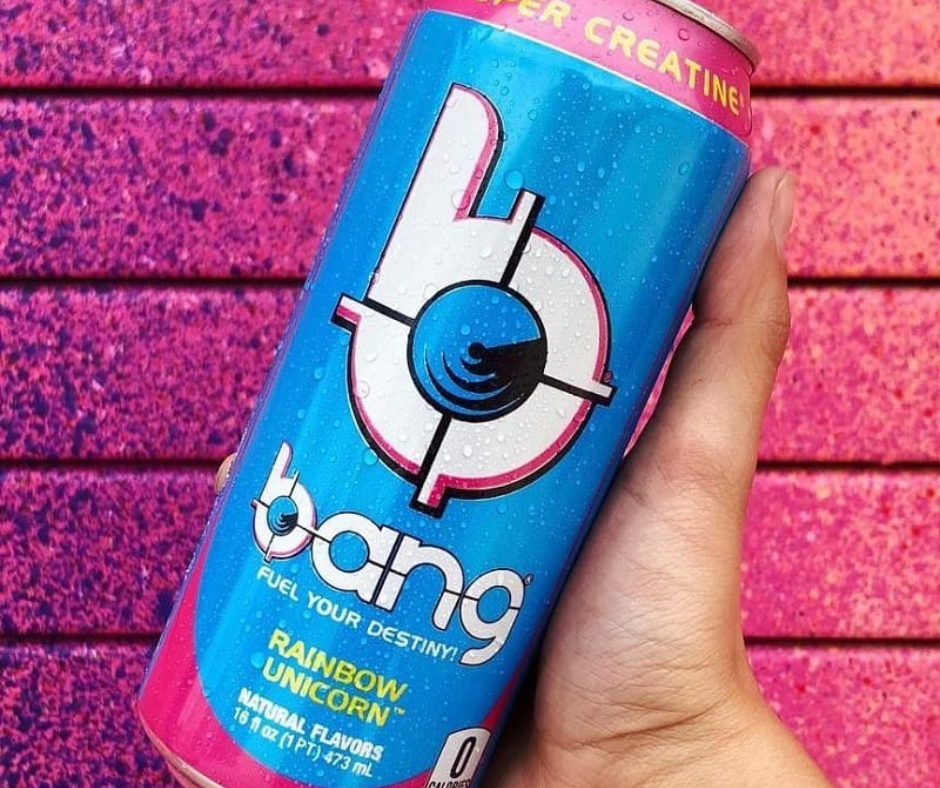Is Bang Bad for You? Unveiling the Truth About Energy Drinks
Bang energy drinks may pose health risks due to their high caffeine and additive content. Consuming them in moderation is key to minimizing potential side effects.
Bang energy drinks have surged in popularity among those seeking an extra burst of energy, but with this rise comes the question of their impact on health. Containing a potent mix of caffeine, sweeteners, and other supplements, Bang drinks promise enhanced performance and focus.
While they can offer a temporary boost, it’s essential to consider the long-term effects of habitual consumption on your body. High caffeine levels can lead to increased heart rate, anxiety, and sleep disturbances. Understanding the ingredients and their possible consequences can help consumers make informed decisions about integrating these beverages into their diets. With an ever-growing market for energy drinks, awareness of their health implications is crucial for maintaining a balanced and safe nutritional intake.

Credit: www.bloomberg.com
The Rise Of Bang Energy Drinks
Bang Energy Drinks have taken the fitness community by storm. Their bold flavors and promises of high energy resonate with active individuals. Many people choose Bang over other energy drinks for its unique ingredients. A key comparison point is the caffeine content. Bang often boasts a higher caffeine level compared to its competitors, which is attractive to those seeking a strong energy boost. It’s vital to note the nutrition labels and ingredients list to understand what makes Bang different.

Credit: crosslakecoffee.com
What’s Inside A Can Of Bang?
A can of Bang is packed with caffeine and other ingredients. You find Super Creatine, BCAAs, and CoQ10 inside.
These are all meant to give you energy and help with workout performance. Now, there are hidden additives that raise eyebrows.
Things like artificial colors and flavors are in the mix. We also see sweeteners such as sucralose. While not always bad, they can cause health concerns for some people.
| Ingredient | Effect |
|---|---|
| Caffeine | Boosts energy |
| Super Creatine | Supports muscle growth |
| BCAAs | Helps with recovery |
| CoQ10 | Improves energy production |
| Sucralose | Added for sweetness |
Bang’s Health Claims Debunked
Bang Energy drinks boast about boosting workouts and mental focus. Fans love the zero calories, zero sugar, and high caffeine content. Yet, health experts raise eyebrows. Claims of enhanced performance and concentration lack solid scientific backing. Many worry about the potential risks like increased heart rate and blood pressure.
Weight loss promises are also under scrutiny. Without sugar, Bang tempts those cutting calories. But, zero sugar doesn’t equal safe weight loss. There’s no substitute for a balanced diet and regular exercise. Moreover, excessive caffeine may lead to sleep disturbance – bad for health and weight management.
| Claim | Reality Check |
|---|---|
| Boosts Workouts | Lacks concrete proof |
| Enhances Focus | Scientifically unsupported |
| Aids in Weight Loss | No guarantee without diet and exercise |
Potential Risks And Side Effects
Many people enjoy energy drinks for a quick boost. Bang is a popular brand. But, it could cause short-term jitters. Too much caffeine can make you feel nervous or anxious. Your heart might beat faster. This is not comfortable. Some people may even feel shaky or irritable.
Long-term effects are worrying. Scientific studies show links to heart problems. Drinking lots of Bang might hurt your heart health. It can increase blood pressure and heart rate. This makes your heart work too hard. This is not good for you. It’s important to think about these risks.
Comparative Analysis
Bang energy drinks can pack a punch with caffeine. Many people sip them for quick energy. With big caffeine, other traditional drinks like coffee look small. A simple cup of joe has less caffeine. But, tea and soda also have caffeine. They have even less than coffee. This makes Bang a heavyweight in the ring.
Looking at natural boosters, fruits lead the way. Foods like bananas give you power too. They use natural sugars and vitamins for energy. Other helpers include nuts and seeds. Some folks pick these over Bang. They may want to avoid too much caffeine.

Credit: www.bloomberg.com
Consumer Experiences And Research Findings
Regular Bang users share mixed feelings. Many report increased energy and alertness. Others express concerns about jitters and disrupted sleep patterns. Some individuals notice improved gym performance. Yet, a portion of users mention heart palpitations and anxiety.
Scientific studies scrutinize high-caffeine drinks like Bang. Research points to possible health risks with prolonged use. These include high blood pressure, stress on the heart, and potential dependence on caffeine. Contrarily, some studies show temporary boosts in concentration and physical abilities. The impact varies widely among different people.
Frequently Asked Questions Of Is Bang Bad For You
What Are Bang Energy Drink’s Health Effects?
Bang Energy Drinks contain caffeine, amino acids, and vitamins. With 300 mg of caffeine per can, consuming Bang can increase alertness but may lead to caffeine-related side effects such as jitters or insomnia, especially in sensitive individuals.
Can Bang Energy Cause Heart Issues?
Excessive consumption of Bang Energy Drink, due to its high caffeine content, could contribute to increased heart rate and blood pressure. Individuals with pre-existing heart conditions should exercise caution and consult a doctor before consumption.
How Does Bang Compare To Other Energy Drinks?
Bang Energy Drink stands out with its sugar-free formula and inclusion of CoQ10 and BCAAs. However, it contains a significantly higher caffeine content compared to many other brands, making moderation important for consumers.
Is Bang Energy Drink Suitable For Workouts?
Bang Energy Drink may enhance workout performance due to its high caffeine content and added amino acids. It is marketed to athletes for its potential to increase endurance and focus, but users should be mindful of their caffeine tolerance.
Conclusion
Wrapping up the debate on Bang’s health impact, it’s clear that moderation is key. Understanding ingredients and personal tolerance is vital. Before reaching for a can, consider your health goals. Consult a nutritionist if in doubt. Balance and informed choices will always be your best bet for wellness.



